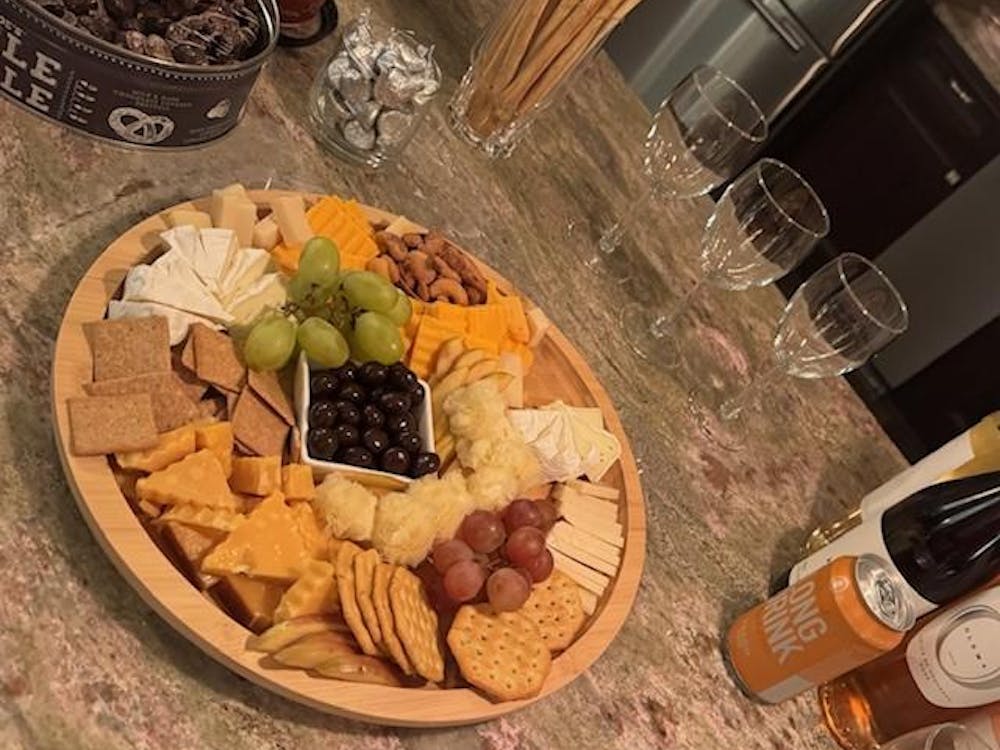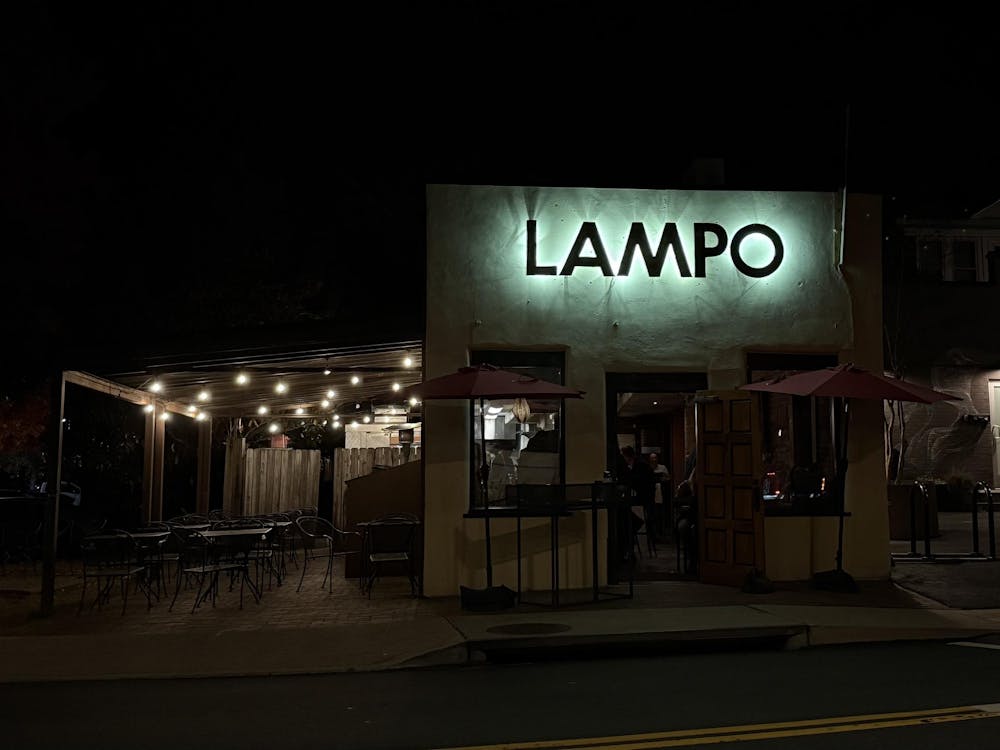As the leaves change and the middle of the fall semester draws near, it may occur to fourth-year students that there are only seven months left to reflect on their University memories before taking the final walk down the Lawn.
But the Class of 2001 will throw off their caps in May without four of their classmates. Since October of 1997, four women from the Class of 2001 have died of cancer-related illnesses. The fourth-year class gift to the University will go towards a scholarship fund for cancer survivors set up in honor of the students.
"This memorial scholarship is a perfect fit for the Class of 2001," said Jason Life, the fourth-year class advisor from the Alumni Association.
Many students know about the deaths of the four girls, "but not that all four were related to cancer," said Kevin Neher, a fourth-year trustee and the Class Gift Committee Chair. "It doesn't happen very often."
|
Natalie Newman, Erika Hess and Karen Jargowsky passed away during their first year at the University, just as they were getting a taste of college life. Megan Stoker was in her third year when she died last March.
Natalie's Story
Mobile, Alabama native Natalie Newman only lived in Balz House for a few weeks in September 1997 before she left with a brain tumor. According to a letter from her father, Newman was diagnosed with leukemia at the age of 10. She was declared cured after five years of treatment and graduated from high school in May 1997.
In August 1997, a subdural hematoma was discovered during a brain scan, but it amazingly disappeared two weeks before Newman came to the University. However, the malignant tumor came back and Newman died in mid-October.
Her father wrote that even though she did not get to spend a long time at the University, every minute was precious to her.
Remembering Erika
"She was magnanimous," fourth-year College student Sarah Winston said after a thoughtful pause, describing Erika Hess, her suitemate in Dunglison House. Hess, who was from Massachusetts, died unexpectedly of acute leukemia Christmas Day of 1997.
Winston said Hess's cancer was not discovered until after she died and she only had suffered from headaches.
"We were lucky to know her," said Winston, "and we didn't realize it until she was gone."
Winston described Hess as a "work-a-holic" who got straight As her first semester in the Architecture School. She also recalled Hess's unfalteringly thoughtful nature. She once went out in the rain at night to bring a friend a forgotten invite to a fraternity party.
"It left a huge hole in our suite," she said, adding that Hess's death brought them closer.
"We put our energy into two things: a memorial service and a fundraiser, which was super healing," Winston said.
The general spirit of the class gift should be important to fourth years to honor those who "weren't as lucky as we are and able to graduate ... It's important to remember them," she said.
Without Karen
"She never really wanted us to know how sick she was," said fourth-year College student Chris Norman, a friend of Karen Jargowsky. "She put up a front of strength."
Jargowsy battled leukemia throughout her senior year of high school and was finishing treatment before she came to the University in August 1997.
"She was really enthused and excited about school," Norman said of Jargowsky, who was from Roanoke.
She thought the cancer was gone, but during first-semester finals she received the devastating news that it was back, Norman said.
A bone marrow transplant aimed at treating the cancer was unsuccessful, and Jargowsky dropped out of school and stayed at the U.Va. Hospital for treatment.
Two days before she died, Jargowsky wrote a letter to her resident assistant that was barely legible because she was so weak, telling her friends not to worry about her.
"It was heartbreaking," Norman said.
Jargowsky died in mid-April, 1998. Her friends held a memorial service for her in the garden of one of the pavilions, where the Academical Village People (AVP), an a capella group, sang.
"She loved music," Norman said. "She had wanted to try out for an a capella group."
In her honor, some of Karen's friends managed to get a bone marrow drive that was taking place at the University at the time of her death extended and put in Jargowsky's name. It is now known as the Karen Jargowsky Donor Drive.
"I think it's very important," Norman said of the fourth-year class gift. "It's not self serving."
Missing Megan
Megan Stoker originally was a member of the Class of 2000. Over winter break in 1998, during her third year at the University, she found out she had leukemia. She dropped out of school for the spring semester and thought she would be able to come back to school in the fall, but was unable to because of her treatment.
Last fall, Stoker's health seemed to improve and she made plans to return to the University this year as a fourth-year student and graduate with the Class of 2001. She even signed a lease and planned to live with fourth-year College student Liz Skane, a fellow member of the a capella group the Sil'hooettes.
But Stoker's health worsened and she passed away last March. Skane said the Sil'hooettes dedicated their spring 2000 concert to Stoker along with their most recent CD, in which she has two solos.
"This disease just totally robbed this University of a wonderful, unique personality," said Skane, describing Stoker's funny and fun-loving character.
There will be four fewer names called on graduation day, four girls who did not get to complete their University experience and who will not get to reflect on their college years as many current fourth-year students will do in May.
Previous class gifts have gone towards scholarships honoring deceased classmates, but this year's gift is unique because it honors four members of the same class who died of similar illnesses.
Originally, after Newman and Hess died, a scholarship fund was set up by the Class of 2001 First-Year Council within the U.Va. Fund, a collection of different scholarship funds.
Stoker and Jargowsky's names were added to the fund when the Fourth-Year Trustees decided to put the Class of 2001 gift money towards that fund, to enable future cancer survivors to attend the University.
"It leaves a lasting legacy of helpfulness from the Class of 2001," said Fourth-Year Class President Drew Davis, who also stressed the importance of participation through a donation.
"The goal of the class gift is participation," said Neher, the class gift committee chair. He emphasized the goal of breaking the participation record of 32 percent held by the Class of 2000.
The fourth-year trustees are working to encourage all fourth years to donate - no matter the amount - to the class gift.
Twenty percent of the donation automatically goes toward the cancer survivor scholarship fund, while the other 80 percent goes toward an organization of the student's choice. Students can request that their entire donation go toward the fund.
"It's up to the fourth-year class as to whether this is a success," said Life, the fourth-year class advisor, pointing out that the Class of 2001 is already ahead of where the Class of 2000 was at this time of the year.
Bonnie Ford, Associate Director of the U.Va. Fund at Alumni Hall, said she has been in contact with some of the families and that they are eager to award the scholarship to a cancer survivor.
Ford said the fourth-year class gift tells the families that "their daughter is not forgotten, that she is still a part of U.Va"






